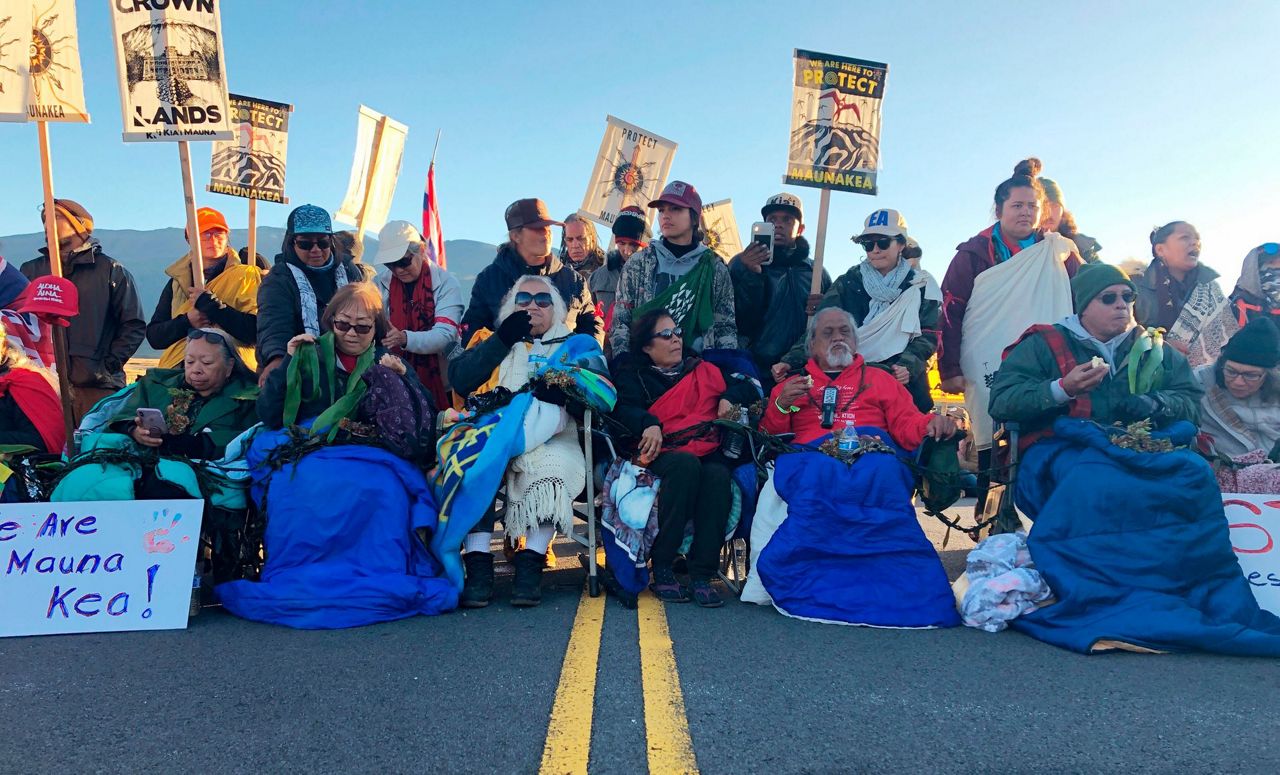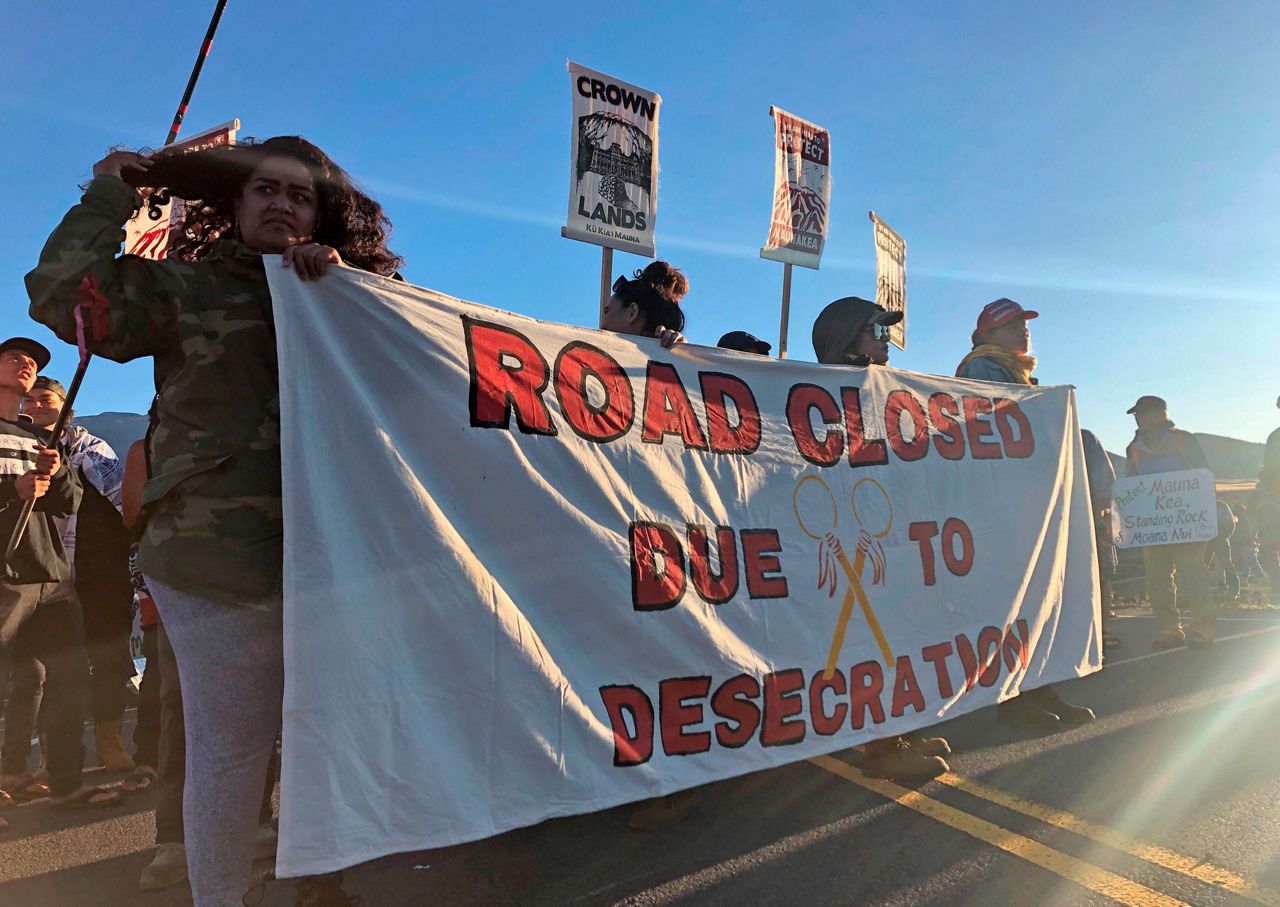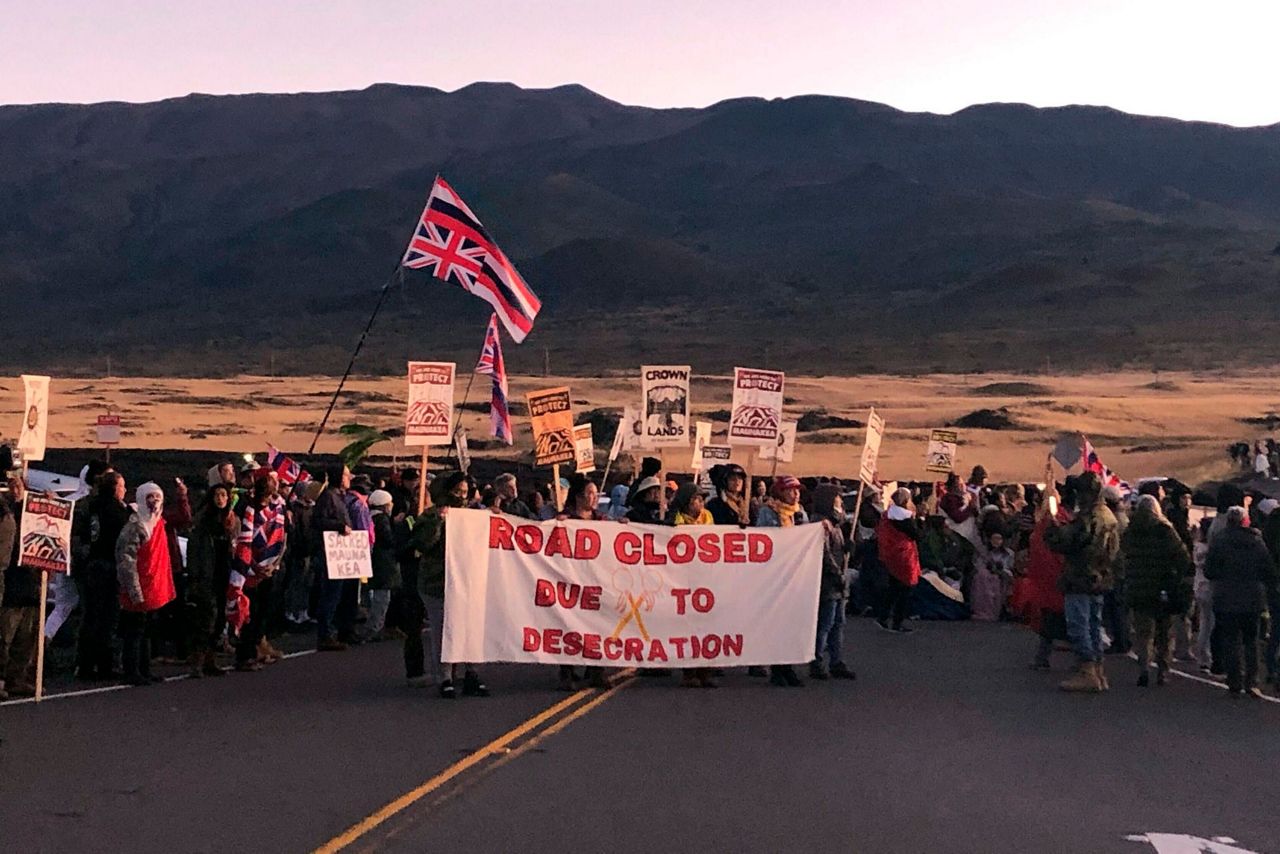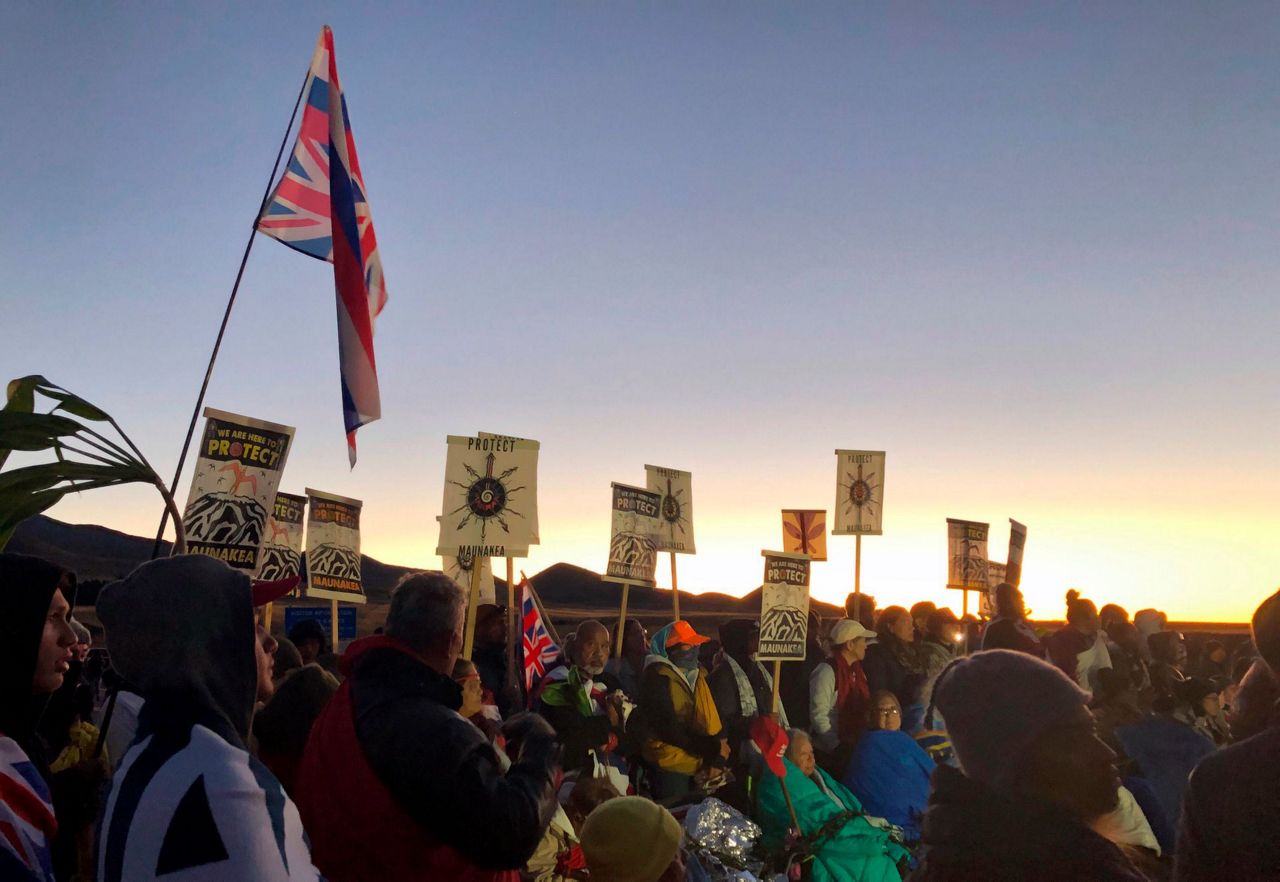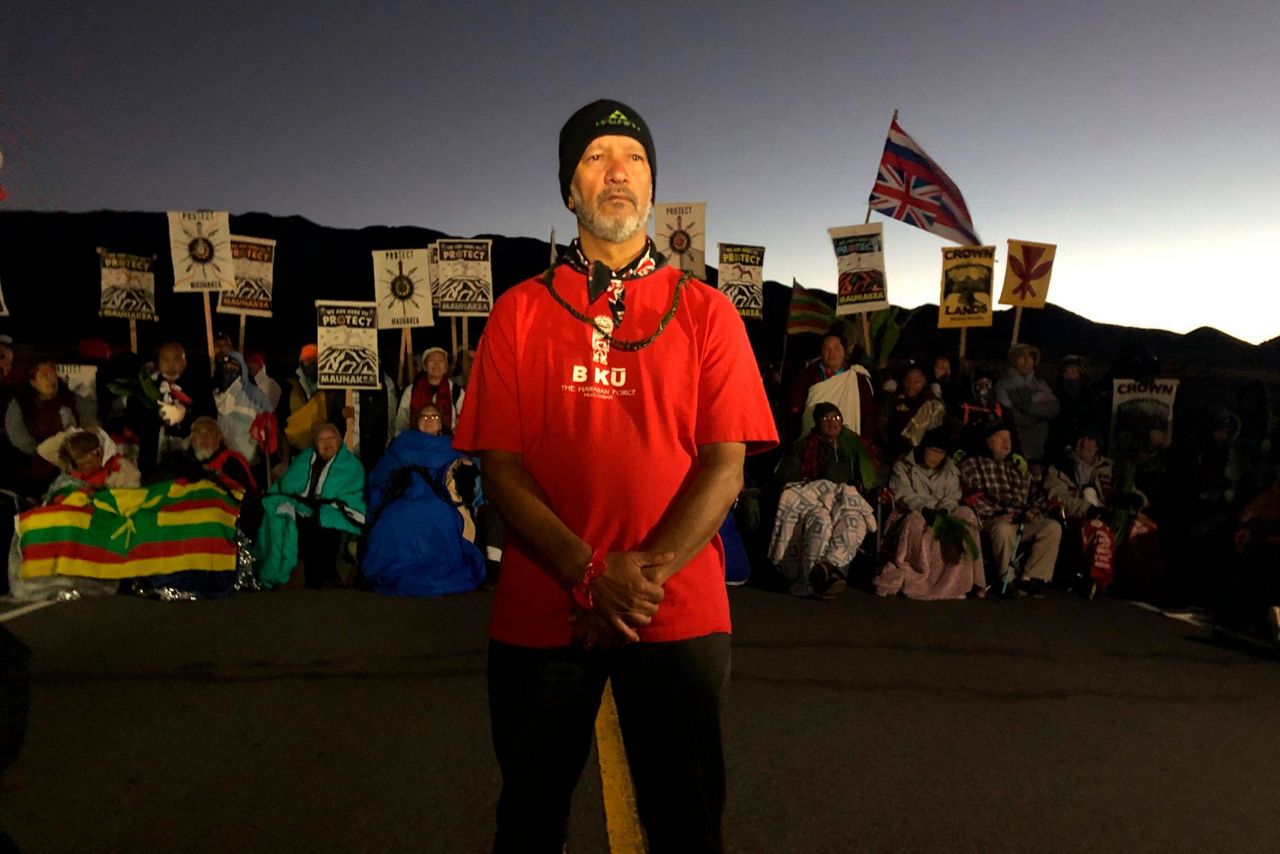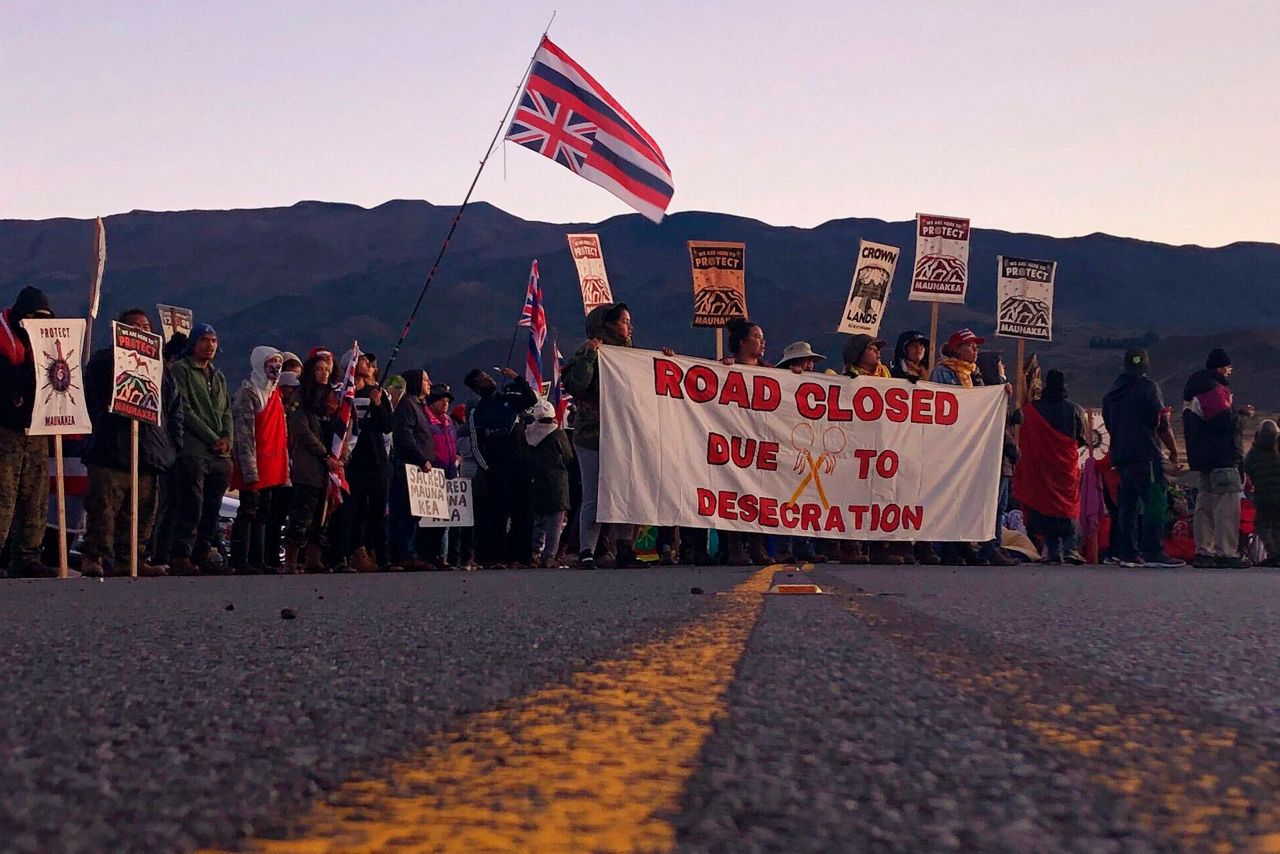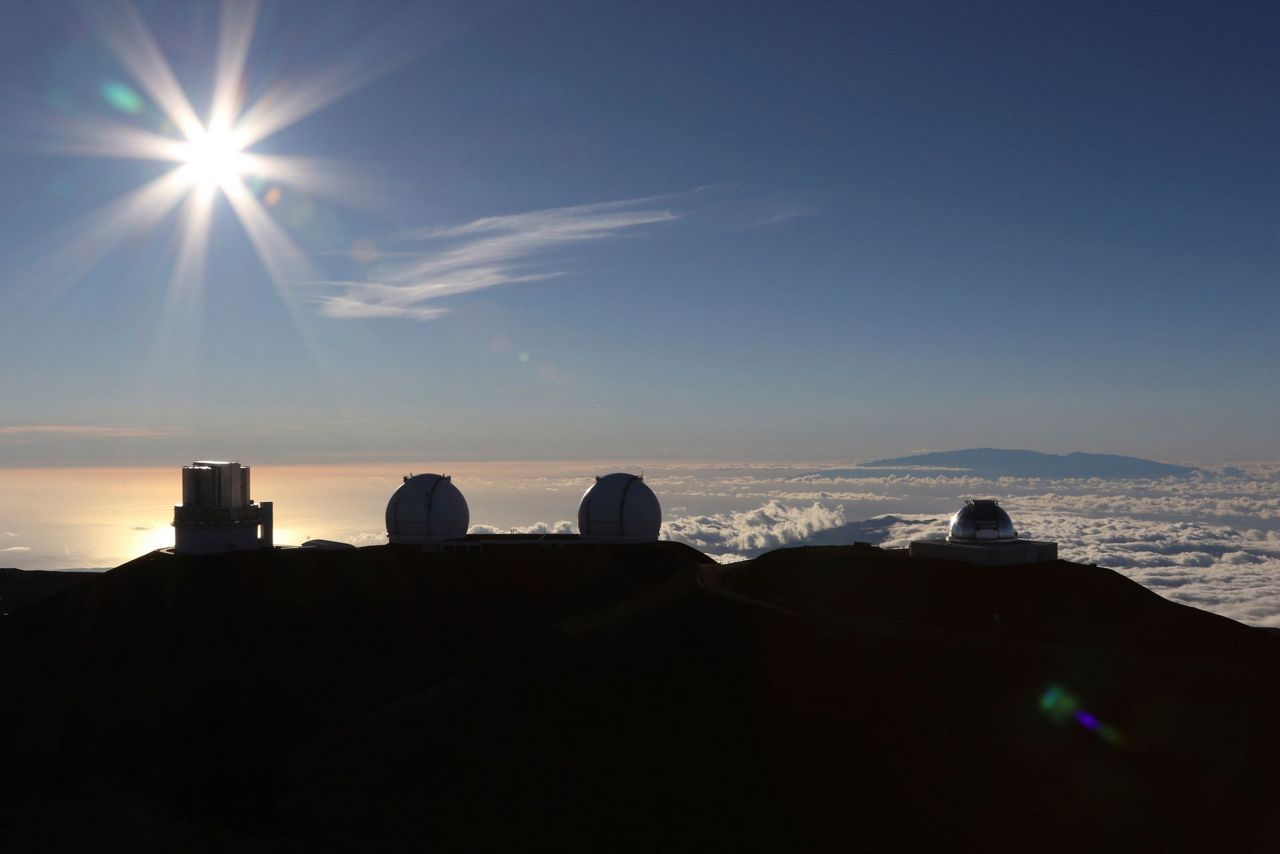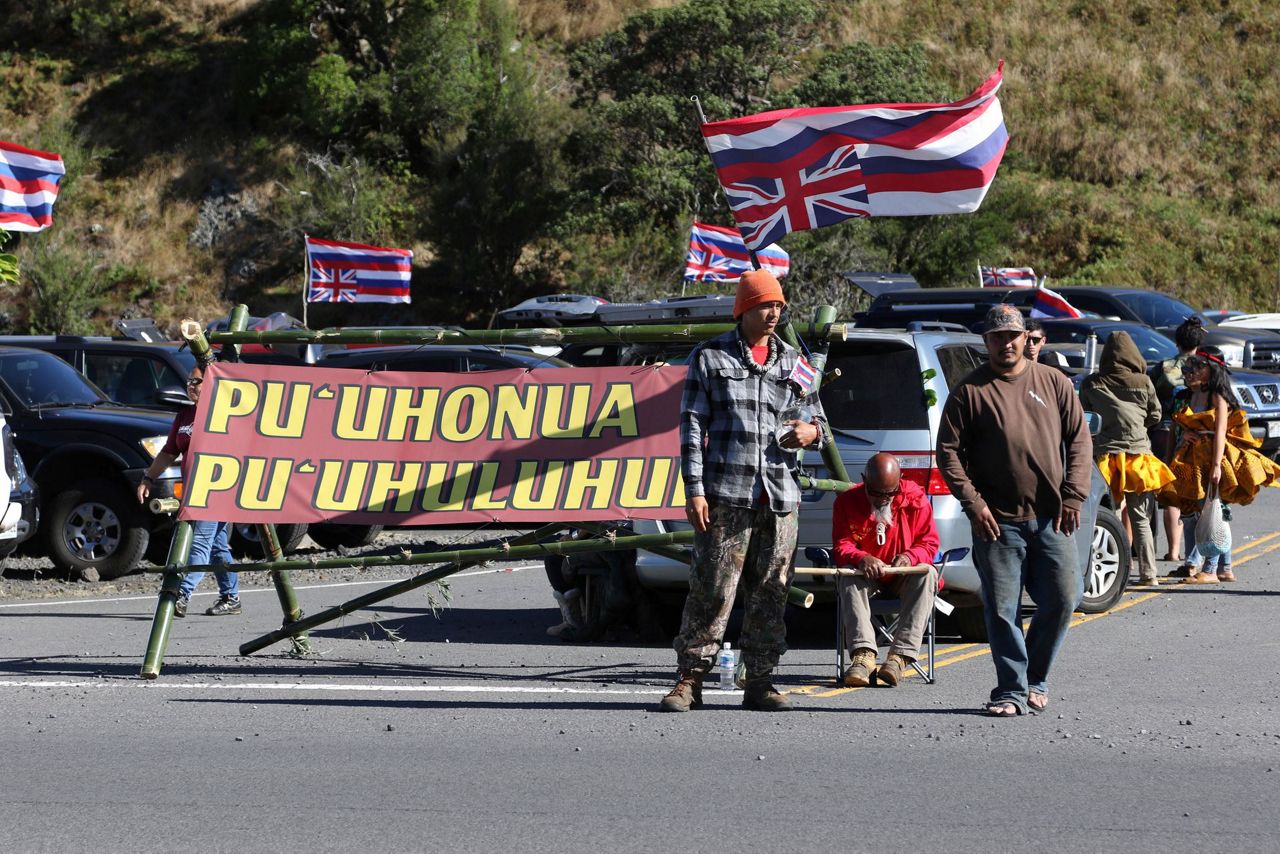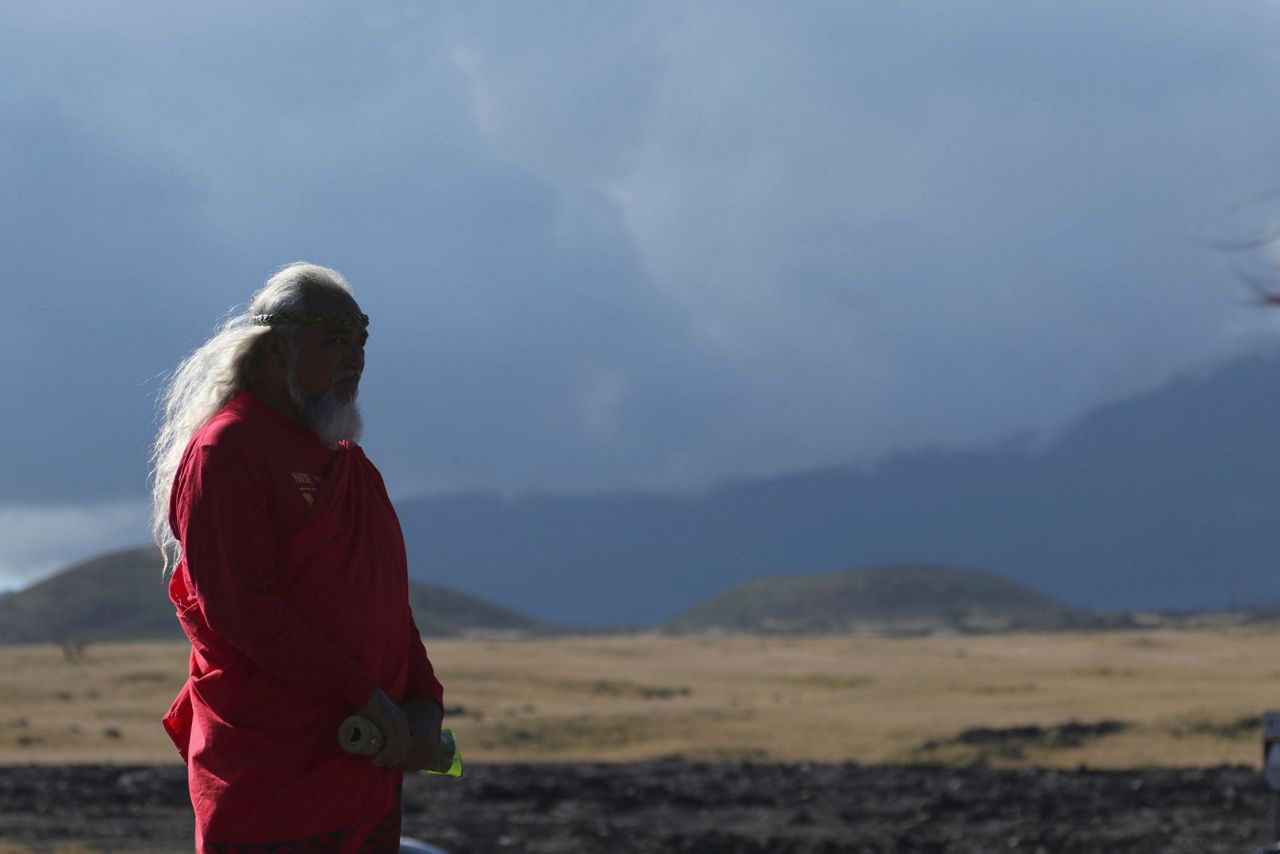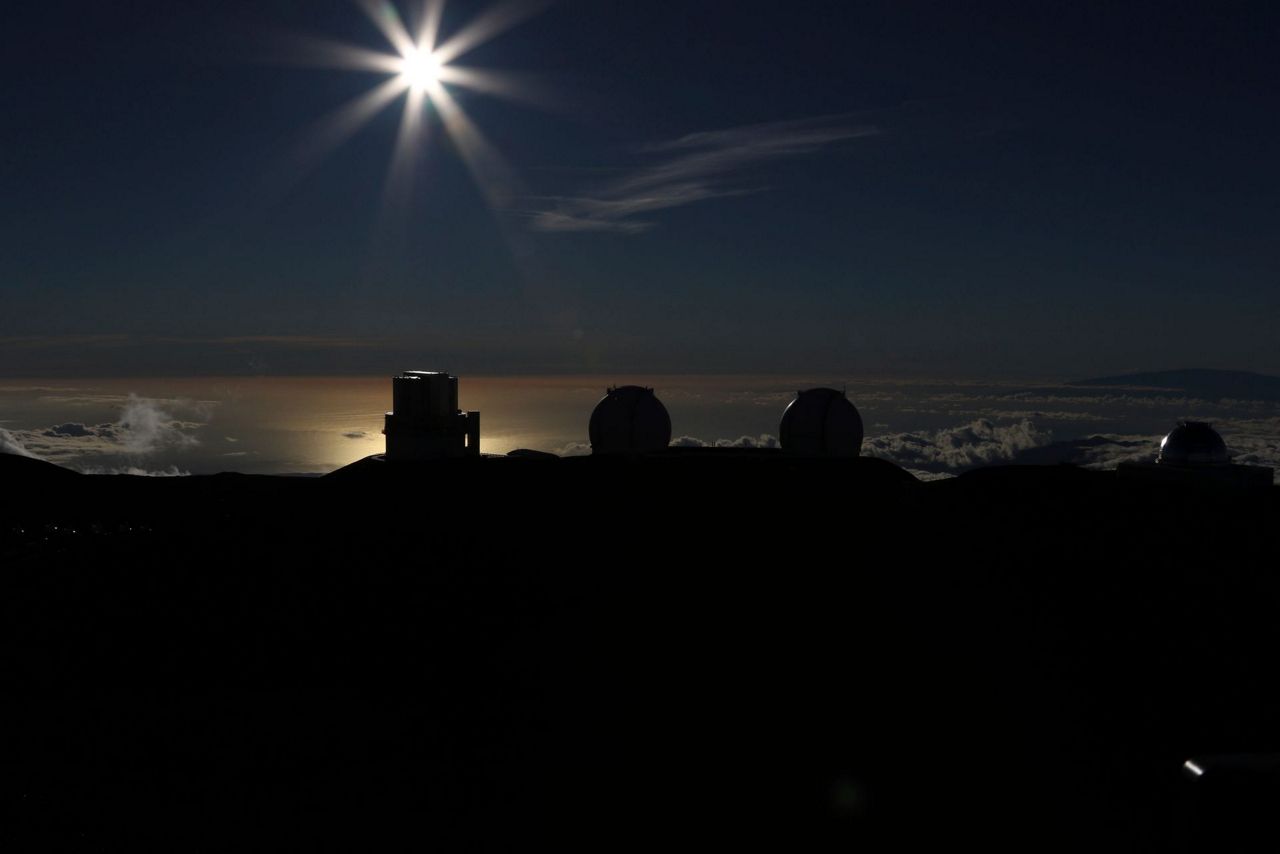MAUNA KEA, Hawaii (AP) — Protesters against building a giant telescope on top of a mountain some Native Hawaiians consider sacred said they tried unsuccessfully Tuesday to negotiate access up Mauna Kea while the road to the summit is closed in preparation for construction equipment to be taken up.
Kaho'okahi Kanuha, one of the protest leaders, told reporters that activists asked state officials if they could have one vehicle access the road daily. He said that in exchange, protesters would have allowed workers at the mountain's 13 existing telescopes to travel freely, but no agreement was reached.
Mauna Kea observatories are suspending operations while protesters block the road downslope. East Asian Observatory Deputy Director Jessica Dempsey said Tuesday the existing observatories decided to withdraw personnel from the summit for safety.
Gov. David Ige has said unarmed National Guard units would be used to transport personnel and supplies and enforce road closures but would not be used in law enforcement capacity during the protests.
Protesters won't allow National Guard members to pass, Kanuha said.
"We are at a standstill," he said.
Several hundred gathered at the base of Mauna Kea Tuesday. The crowd was smaller than the one that assembled a day earlier, when officials closed the road to the summit and eight protesters shackled themselves to each other over a grate in the road.
Authorities didn't arrest anyone, saying their priority was installing concrete barriers along a nearby highway to create a buffer between speeding cars and the large numbers of people congregating in the area.
"We understand that this going to be a prolonged struggle," Kanuha said.
Astronomers are hopeful the $1.4 billion Thirty Meter Telescope will help them study the earliest moments of the universe after the Big Bang as well as identify more planets outside our solar system.
They favor Mauna Kea on the Big Island because the clear air and limited light pollution at its summit 13,796 feet (4,205 meters) above sea level makes it one of the world's best locations for studying the skies. The peak is already home to about a dozen other telescopes.
But some Native Hawaiians view the summit as sacred, and say the presence of yet another telescope will further damage it.
Other Native Hawaiians say they don't believe the telescope will desecrate Mauna Kea. Most of the cultural practices on the mountain take place away from the summit, said Annette Reyes, a Native Hawaiian from the Big Island.
"It's going to be out of sight, out of mind," she said.
Reyes said there are many others like her, but they're reluctant to publicly support the telescope because of bullying from protesters, a group she calls a "vocal minority." She says she's been called a fake Hawaiian for supporting the project.
Reyes said Hawaii's young people can't afford to miss out on the educational opportunities, citing telescope officials' pledge to provide $1 million every year of the 19-year Mauna Kea sublease to boost science, technology, engineering and math education.
Telescope opponents have filed a petition in court seeking to halt construction, saying the project must post a security bond equivalent to the construction contract cost before starting to build.
The project has been delayed by years of legal battles and demonstrations. Doug Ing, an attorney for the Thirty Meter Telescope, said this latest lawsuit has no merit and is just another delay tactic.
Hawaii's Supreme Court last year ruled construction would be legal. The company behind the telescope is made up of a group of universities in California and Canada, with partners from China, India and Japan.
The telescope's primary mirror would measure 98 feet (30 meters) in diameter. It would be three times as wide as the world's largest existing visible-light telescope, with nine times more area.
Some have described the controversy as a clash between science and culture.
Opponents and supporters say that's not true.
Science was an integral part of ancient Hawaiian lives, Reyes said. "Everything they did was science, from growing fish and taro to wayfinding."
Kanuha said he would even oppose building a cultural center on the mountain.
"We have said over and over again we are not against the science," he said. "We are not against the telescope."
"We are against the desecration of our mauna against the will of the (people). Cultural center, aole," he said, using the Hawaiian word for no. "TMT, aole. Pizza Hut, aole. It doesn't matter."
___
Kelleher reported from Honolulu. Audrey McAvoy contributed to this report from Honolulu.
Copyright 2019 The Associated Press. All rights reserved. This material may not be published, broadcast, rewritten or redistributed.





